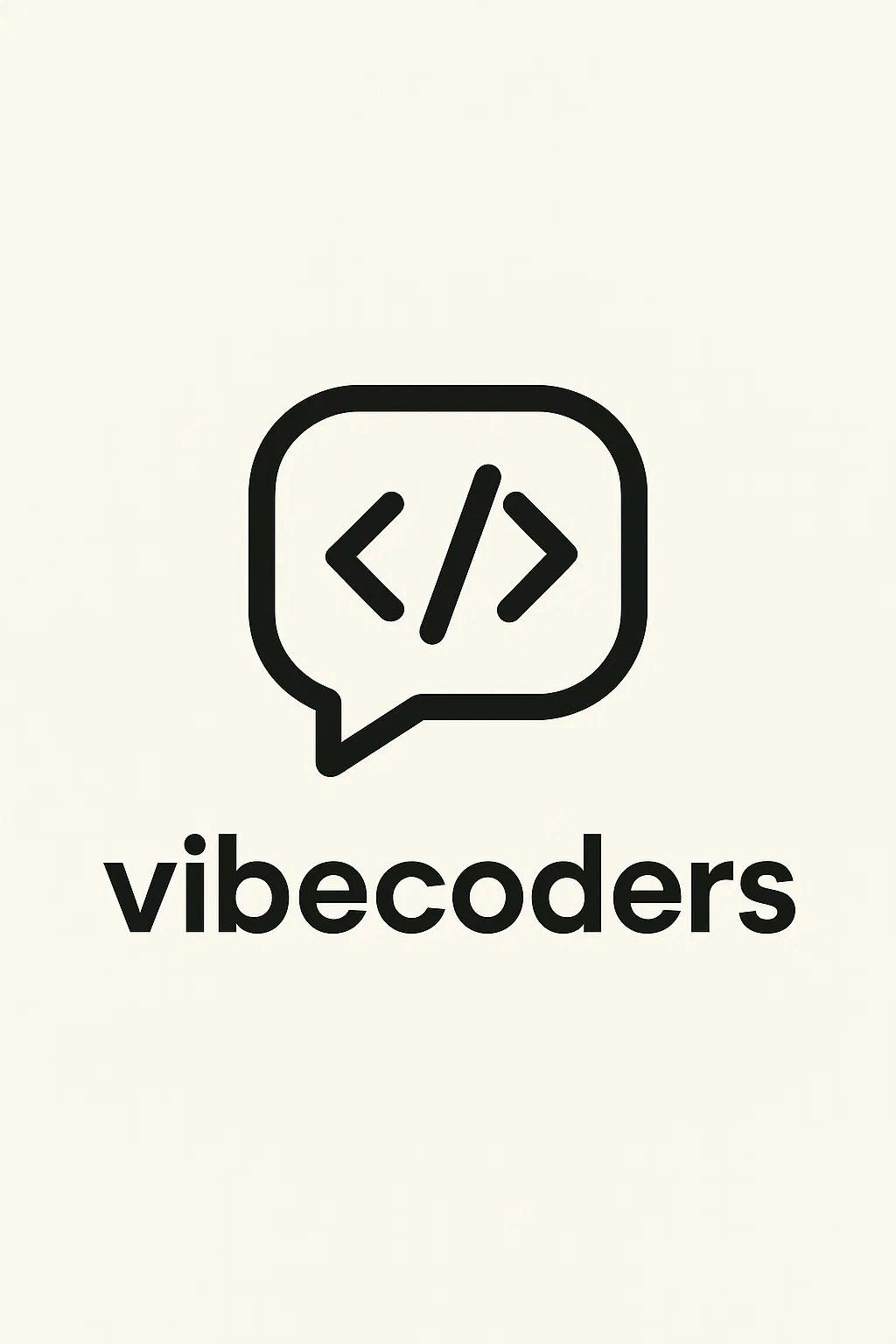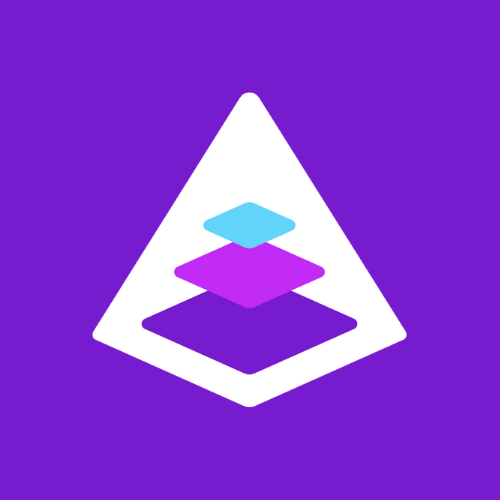vibecoders
Alternatives
117,069 PH launches analyzed!

vibecoders
coding community for the new wave of llm-native devs.
4
Problem
Developers in the LLM-native space face fragmented learning resources and limited tailored communities, relying on generic platforms lacking focused discussions, collaboration opportunities, or project-sharing mechanisms for AI/LLM-specific development.
Solution
A free community platform where developers can discuss LLM-native projects, share insights, and connect with peers. Features include discussion threads, project showcases, and networking tools (e.g., collaborative project matching).
Customers
LLM/AI developers, AI engineers, indie hackers, and tech enthusiasts building LLM-driven applications, typically aged 20–40, actively seeking niche communities for knowledge exchange.
Unique Features
Exclusive focus on LLM-native development, zero-cost access, and project-centric collaboration tools to foster peer-driven innovation.
User Comments
Useful for niche AI discussions, Easy project-sharing, Free and active community, Connects like-minded builders, Simplifies LLM learning curve
Traction
Launched in 2023, details on users/revenue not public. Active engagement inferred from Product Hunt presence (shared via PH links provided).
Market Size
The global developer population reached 27.7 million in 2023 (Statista), with AI/ML developers estimated at ~300k (Grand View Research), indicating a sizable niche market.

Explore Devs by TechStack- code-tree.dev
Now you can search developers on code-tree.dev
20
Problem
Users need to manually search for developers based on specific tech stacks and interests using platforms like LinkedIn or GitHub, but struggle due to inefficient filtering of developers by specific tech stack expertise and relevant bio keywords/interests.
Solution
A developer search tool (code-tree.dev) where users can filter developers by tech stack (e.g., React, Rust, Python) and bio keywords/interests to find relevant candidates.
Customers
Hiring managers, technical recruiters, startup founders, and project managers seeking developers with niche skills or domain expertise.
Unique Features
Combines tech stack and keyword-based search with a developer-centric community focus, enabling granular filtering unavailable on traditional platforms.
User Comments
Simplifies finding developers for niche tech roles
Useful for startups targeting specific expertise
Saves time compared to LinkedIn/GitHub
Needs more developer profiles to scale
Intuitive search interface
Traction
Newly launched with limited public metrics; ProductHunt page highlights active engagement (exact user/revenue data unspecified).
Market Size
The global recruitment market is valued at $760 billion (2023), with tech recruitment representing a growing segment driven by demand for specialized roles.

AI Native Dev Landscape
Your Landscape to the AI Native Dev tooling ecosystem
36
Problem
Developers struggle to navigate the fragmented and rapidly evolving AI tooling ecosystem, leading to inefficiency in identifying relevant tools and staying updated with new solutions.
Solution
A curated directory tool that categorizes AI-native development tools, enabling developers to explore, compare, and track tools across categories like code assistants, testing, and DevOps. Example: Browse tools tagged 'Code Generation' or 'AI-Powered Debugging'.
Customers
Software developers, engineering managers, and tech leads building AI-native applications who need structured insights into tooling options.
Alternatives
View all AI Native Dev Landscape alternatives →
Unique Features
Focus on AI-native development specificity (vs. general tool directories), dynamic categorization reflecting industry trends, and community-driven updates.
User Comments
Saves hours of research
Essential for staying updated
Missing granular filters
Needs more tool comparisons
Valuable for team onboarding
Traction
Launched on ProductHunt (date unspecified), no disclosed revenue/users. Founder's X/Twitter follower count unavailable from provided data.
Market Size
The global AI software market is projected to reach $1.3 trillion by 2032 (Grand View Research), with developer tools being a key growth segment.

Dev Code Memory
“Organiza y reutiliza tus snippets en VS Code 🚀”
1
Problem
Developers manually save and search code snippets in VS Code, leading to inefficient code reuse and management
Solution
A VS Code extension enabling users to save, import, search, and replace code snippets via a local JSON storage styled like MongoDB, with agile and secure operations
Customers
Developers and programmers working in VS Code who need to manage reusable code across projects
Alternatives
View all Dev Code Memory alternatives →
Unique Features
Local private JSON storage mimicking MongoDB for snippet management without cloud dependency
User Comments
Saves time searching for snippets
Seamless VS Code integration
Appreciate local storage for privacy
JSON structure simplifies organization
Lacks cloud sync feature
Traction
Launched on ProductHunt, no public revenue/user data available
Market Size
The global developer tools market was valued at $8.56 billion in 2023 (Grand View Research)

OpenLIT's Zero-code LLM Observability
Trace LLM requests + costs with OpenTelemetry monitoring
147
Problem
Users previously had to manually set up and integrate multiple observability tools to monitor LLM apps, VectorDBs, and GPU usage, leading to fragmented insights, high operational complexity, and inability to track costs and performance holistically
Solution
A zero-code OpenTelemetry-native monitoring platform that automatically traces LLM requests, costs, and performance while integrating evaluations, prompt management, and secure vaults for sensitive data
Customers
DevOps engineers, ML engineers, and teams building AI agents/LLM applications in enterprises and startups
Unique Features
OpenTelemetry-native LLM/VectorDB/GPU monitoring, built-in guardrails, prompt hub, secure vault for API keys, self-hostable architecture
User Comments
Simplifies LLM observability
Critical for cost tracking
Saves engineering time
Secure vault is a standout
Easy OpenTelemetry integration
Traction
Newly launched on ProductHunt (500+ upvotes), 1k+ GitHub stars, adopted by 50+ enterprises, fully open-source with paid cloud version
Market Size
The global generative AI market size was valued at $40.14 billion in 2023 (Grand View Research), with LLM operations tools being critical infrastructure

Mobilable.dev
Create an IPhone/Android app without coding
17
Problem
Users without coding skills struggle to create native iOS/Android apps, facing high costs, long development time, and dependency on developers.
Solution
A no-code AI platform where users can generate React Native code, UI, backend, and deploy to app stores instantly (e.g., turn ideas into apps in minutes).
Customers
Entrepreneurs, small business owners, and non-technical founders seeking to build apps without coding expertise.
Unique Features
End-to-end AI-driven app creation with instant React Native code generation, UI/backend setup, and app store deployment.
User Comments
Simplifies app development for non-developers
Saves weeks of development time
Intuitive interface for quick prototyping
Requires clearer guidance on backend customization
Limited customization options for advanced users
Traction
Launched on Product Hunt recently; details like MRR/user numbers not publicly disclosed yet.
Market Size
The global low-code/no-code platform market is projected to reach $65 billion by 2027 (Statista, 2023).
Ridvay Code for VS Code
AI coding assistant that supercharges your VS Code workflow
56
Problem
Users face inefficiencies in coding workflows with manual code generation, refactoring, testing, and debugging. Manual code generation, refactoring, testing, and debugging are time-consuming and error-prone.
Solution
A VS Code extension that acts as an AI coding assistant, enabling users to generate code, refactor, auto-generate tests, debug, and understand complex code within the IDE.
Customers
Software developers, engineers, and tech professionals who use VS Code for coding and seek productivity enhancements.
Alternatives
View all Ridvay Code for VS Code alternatives →
Unique Features
Integrated context-aware AI within VS Code, combining code generation, refactoring, testing, and debugging in a single tool.
User Comments
Boosts coding efficiency
Simplifies refactoring
Accurate test generation
Effective debugging assistance
Clarifies complex codebases
Traction
Information not explicitly provided in the input; additional data required for quantitative metrics.
Market Size
The global AI developer tools market was valued at $2.7 billion in 2023 (Statista).
Problem
Developers often face challenges in receiving quality feedback on their code, which can lead to slower progress and less improvement in their coding skills. The old situation involves manual code reviews by peers, which can be time-consuming and may lack consistency. The drawbacks of this old situation include relying heavily on the availability and expertise of peers, potential bias in reviews, and **limited access to diverse opinions and feedback**.
Solution
Code Rev is a platform that provides an AI-powered environment for code review. Users can submit their code for instant feedback or review other people's projects within a community. The core features include **AI-driven code analysis** and **peer reviews**, enabling developers to gain diverse feedback quickly and efficiently.
Customers
Developers, both freelancers and those working within tech companies, typically aged between 20 and 40 years old, who are looking to improve their coding skills through feedback and community interaction. **Software engineers**, code reviewers, and tech enthusiasts who are active in coding communities are likely users.
Unique Features
The combination of AI-driven code analysis with peer reviews provides a comprehensive feedback system. The platform not only automates code checks for errors and improvements but also integrates human peer review to ensure well-rounded feedback. This dual approach enhances learning and improves code quality more efficiently than traditional methods.
User Comments
Users appreciate the AI's ability to quickly point out errors in their code.
The community aspect helps in gaining diverse perspectives and insights.
The platform saves time compared to traditional review methods.
Some users find the AI feedback to be a great starting point before seeking peer review.
Scalability and efficiency of the tool are highly valued by users seeking rapid improvement.
Traction
Code Rev is relatively new on the market. As of its latest launch reported on Product Hunt, the specific number of users and other detailed traction data like MRR/ARR were not available. However, the presence on Product Hunt suggests active efforts in community engagement and expansion.
Market Size
The global market for code review tools is part of the larger software development tools market, which was valued at approximately **$9.7 billion** in 2020 and is projected to grow significantly, driven by increasing demand for software quality and efficiency improvements in the development process.
Problem
Developers manually review and fix code issues in pull requests, which is time-consuming and error-prone. Manual code reviews and fixes delay deployments and strain team resources.
Solution
A GitHub-integrated AI tool that automatically fixes code issues via pull requests. Users can automate code quality improvements with zero setup, multi-language support, and secure processing, streamlining workflows for teams.
Customers
Software developers, DevOps engineers, open-source maintainers, and enterprise engineering teams seeking efficient code quality management.
Unique Features
Direct PR integration, AI-driven instant fixes, no configuration required, support for multiple programming languages, and secure code processing without storing data.
User Comments
Saves hours on code reviews
Reduces merge conflicts
Easy GitHub integration
Supports critical languages like Python/JS
Security concerns addressed
Traction
Launched recently on ProductHunt (exact metrics unspecified).
Market Size
The global DevOps market, including code quality tools, is valued at $25.5 billion in 2023 (Grand View Research).

No-Code Buffs
The Home for No-Code Creators
3
Problem
Users previously had to learn no-code development through fragmented resources and work in isolation, leading to slower project completion and limited networking opportunities.
Solution
A community platform where users can learn via courses, share insights, and collaborate with others to build and launch no-code projects faster, supported by structured resources.
Customers
No-code developers, freelancers, and solo founders seeking to build SaaS, apps, or tools without coding expertise.
Unique Features
Combines education (courses), community support, and collaboration tools in one platform, fostering both learning and practical project launches.
User Comments
Valuable peer feedback
Accelerated project timelines
Hands-on learning
Networking opportunities
Motivation from community wins
Traction
Launched on Product Hunt with 500+ upvotes, 10,000+ community members, and $50k MRR from courses and memberships.
Market Size
The global no-code development platform market is projected to reach $13.2 billion by 2026, driven by 50M+ solopreneurs and SMEs adopting no-code tools.
